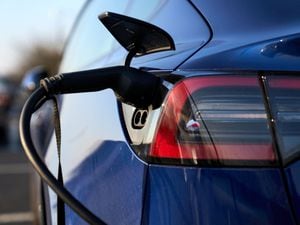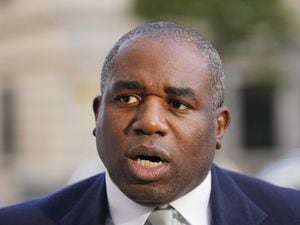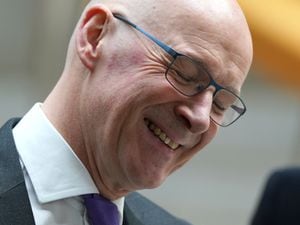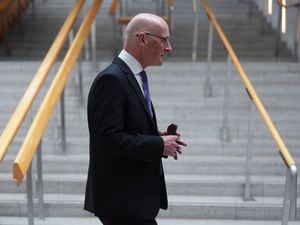Net zero does not mean ‘huge shift’ in everyday lives, top climate adviser says
The shift to zero emissions is an investment strategy for the UK, Climate Change Committee chief executive Chris Stark said, as he leaves the role.

The move to net zero will not require a “huge shift” in everyday lives, with people still able to fly off on holiday and have a steak, a top climate adviser has said.
Speaking as he leaves the role after six years, Climate Change Committee chief executive Chris Stark suggested he and others in the green sector had pushed too hard the idea that the shift required a radical transformation.
Instead people’s lives would not be that different in 2050, the target date for ending the UK’s contribution to climate change by cutting emissions to zero overall.
And after months in which the two major political parties have retreated on climate action, rolling back targets and cutting spending promises, he said politicians needed to show bold leadership.
Net zero was “an investment strategy for the country”, he said, and “fomo” – fear of missing out – should be brought back into the climate debate, as other countries such as the US and China were making significant moves on the transition.
He said the disconnect between the growing impact of the climate crisis which people were witnessing, from 40C heat to the extremely wet winter this year, and the retreat from “owning” net zero by mainstream politicians, was “jarring”.
Amid a debate that has focused recently on the price tag of moving to net zero, Mr Stark said it was important to think about costs, but warned there was a “misrepresentation” of them.
“They are investments, which pay back and they take us to a more productive economy, where there’s more sustainable jobs in the future.”
And he said: “These technologies, particularly the energy technologies, are so cost competitive that if you can build your whole economy around them, your economy will also be cost-competitive, and you don’t want to miss out on that.
“So this sort of fear of missing out – fomo – needs to be brought back into the discussion of climate change, because I think that’s far more motivating for politicians.
“You don’t have to be a climate specialist or advocate to want to see us compete as a country.”
He added that the UK had led so much of the early part of the transition, that “it seems weird that we want to step off now”.
Mr Stark acknowledged that the next period would be “tricky” because money was tight, but said the investments would be replacing dirty assets with clean ones and would pay back fairly quickly.
“The arguments still stack up to do all this. We’re going to need to have some bold leadership.”
Mr Stark described Prime Minister Rishi Sunak’s speech last year, rowing back on climate targets, including pushing back the date for phasing out sales of conventional cars, as “unhelpful”, as a faster transition to clean vehicles is a key part of meeting the UK’s 2030 goals for cutting emissions.
But he also said: “I’m not handing criticism out to any one party, I think there is a general retreat from owning this stuff on net zero.”
And while he played down the idea this year’s general election would be a “climate election”, he said the next parliament would be critical to delivering action on cutting emissions from buildings and industry.
This meant it was important to know what each party planned to do, he said, though he suggested it was no longer “politically convenient” for parties to put climate as central to their manifesto.
Asked how he thought people’s lives would be changed by the move to net zero, he said: “I think I’m as guilty as anyone in the green space, of often presenting the move to net zero as radical, or a major shift or transformative stuff.
“Of course if you work in the energy sector, it is those things, but if you’re a person going about your day-to-day life in Britain right now, I don’t think your day-to-day life will be that different in 2050 when we hit net zero.
“You will still be driving your car, you’ll still be warming your house, you’ll have a job which is probably very similar in its nature to the one you have now.
“I wonder if the way into this is to say this is just the normal course of things, it’s not frightening, you can still fly off on holiday each year, and you can have a steak if you want to. There’s not a huge shift here.”
He said he was not dismissing the need for change, but suggested the idea of a big shift had been pushed too hard, when it was just going to play out in a “much more normal way”.





